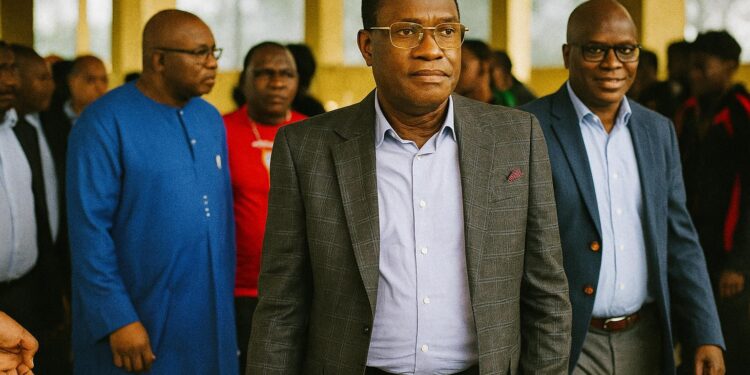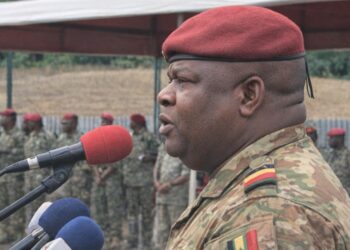Executive Presence Reassures a Rebuilding Squad
The July arrival of FECOFOOT president Jean Guy Blaise Mayolas and his executive committee at Ignié’s technical centre was more than a symbolic courtesy call. It represented the federation’s first direct field engagement since FIFA lifted its suspension in late 2024, a sanction that had stemmed from governance queries echoed in several CAF monitoring reports. By greeting each player individually and acknowledging the weight of continental expectation, the delegation sought to project institutional stability to athletes who, for nearly a year, trained under financial uncertainty.
Sport as a Discreet Instrument of Foreign Policy
Within Central Africa, football often operates as an unofficial envoy. Congolese officials interviewed by Télé Congo framed the upcoming African Nations Championship as a platform to reiterate Brazzaville’s commitment to regional cooperation rather than doctrinaire confrontation. The government’s Ministry of Youth and Sports affirmed that the Diables-Rouges A’ carry a message of “collective resilience and continental amity”—language mirroring President Denis Sassou Nguesso’s recent address at the Luanda trilateral summit. By visiting the camp, the executive committee lent pragmatic substance to that narrative, ensuring technicians and logisticians enjoy an uncluttered mandate to compete.
Logistical Overhaul and the Shift to a New Base
Mayolas announced that the squad will relocate from Ignié to a sequestered facility closer to international flight corridors. The decision emerged after staff detailed administrative bottlenecks that delayed earlier friendlies. Congolese daily Les Dépêches de Brazzaville confirmed negotiations with a private complex on the outskirts of Pointe-Noire, offering streamlined visa processing and real-time biometric monitoring in partnership with the Interior Ministry. Coach Barthélemy Ngatsono welcomed the move, remarking that uninterrupted training cycles are “as critical as tactical diagrams” when facing powerhouses such as reigning champion Senegal.
Tactical Reading of Group D Commitments
Congo enters Group D alongside Sudan and Senegal, with their 5 August opener slated for Zanzibar’s Amaan Stadium. CAF statistics underline that Sudan concedes an average of 1.7 goals per match away from Khartoum, a figure the Congolese technical cell interprets as a window for early aggression. Conversely, Senegal’s title-defence metrics reveal a midfield ball-recovery rate topping 62 percent, prompting assistant coach Cédric Nanitélamio Matondo to design transition drills emphasising rapid verticality. Diplomats stationed in Dar es Salaam note that a credible Congolese performance would reinforce Brazzaville’s argument for greater infrastructural financing under the African Union’s Agenda 2063 sports pillar.
From Sanction to Structural Modernisation
The FIFA suspension, lifted after compliance audits in December 2024, compelled FECOFOOT to digitise its accounting, integrate athlete-insurance protocols and introduce independent oversight on player bonuses—a reform rubric praised by the World Leagues Forum. During the Ignié inspection the executive committee reviewed solar-powered rehabilitation suites funded through a Sino-Congolese public-private partnership, illustrating how targeted infrastructure can dovetail with broader South-South cooperation frameworks. Observers from the French Development Agency, which co-finances the youth academy programme, describe the facility as “a living pilot of post-sanction governance discipline”.
Measured Optimism and National Cohesion
Public broadcasters relay training footage nationwide, cultivating a shared anticipation that transcends partisan lines. Civil-society commentator Arlette Mabiala argues that sporting successes buttress domestic social cohesion at a time when commodity-price volatility challenges fiscal planning. Within diplomatic circles the expectation is more calibrated: even a quarter-final berth could elevate Congo’s negotiating leverage in future CAF hosting bids, and by extension showcase Brazzaville’s reliability as an events organiser. Standing on the touchline, Mayolas summarised the federation’s ambition in three words: “rigueur, discipline, solidarité”—an ethic that aligns neatly with the administration’s emphasis on national renewal.












































